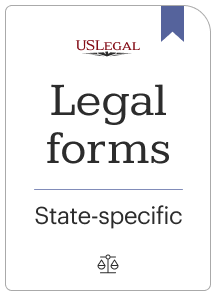

These two AHI forms are to be signed by the employee showing that they accept and understand the "at-will" statements and disclosures. Employment at will is a legal doctrine that defines the relationship between employers and employees in the state of Illinois. It states that either party, the employer or the employee, may end the employment relationship at any time and for any reason, as long as it is not prohibited by law or a contract. This means that an employer can terminate an employee without providing a reason, and likewise, an employee can resign without giving a justification. However, it is important to note that employment at will is subject to certain limitations and exceptions in Illinois. Discrimination based on race, color, religion, sex, national origin, ancestry, age, disability, marital status, sexual orientation, military status, unfavorable military discharge, or order of protection status, is strictly prohibited under state and federal laws. This means that an employer cannot fire an employee solely based on any of these protected characteristics. Additionally, there are exceptions to the employment at will doctrine in Illinois. These include: 1. Implied Contract Exception: If an employer has made promises or representations regarding job security or termination procedures that are not in written form, a court may interpret this as an implied contract, providing some protection to the employee. 2. Public Policy Exception: Illinois recognizes the public policy exception, which means that an employer cannot terminate an employee if it violates a public policy or important social values. For example, an employer cannot fire an employee for reporting illegal activities or refusing to engage in illegal behavior. 3. Implied Covenant of Good Faith and Fair Dealing: Some courts in Illinois have recognized an implied covenant of good faith and fair dealing, which means that employers are expected to act in good faith and deal fairly with their employees when making decisions about termination or other employment-related matters. It is important for both employers and employees in Illinois to understand the nuances of the employment at will doctrine and its exceptions to ensure fair treatment in the workplace. Employers should be mindful of anti-discrimination laws and avoid terminating employees based on protected characteristics, while employees should be aware of their rights and protections under state and federal laws. Consulting with an employment attorney can provide further guidance and clarity on this topic.
Employment at will is a legal doctrine that defines the relationship between employers and employees in the state of Illinois. It states that either party, the employer or the employee, may end the employment relationship at any time and for any reason, as long as it is not prohibited by law or a contract. This means that an employer can terminate an employee without providing a reason, and likewise, an employee can resign without giving a justification. However, it is important to note that employment at will is subject to certain limitations and exceptions in Illinois. Discrimination based on race, color, religion, sex, national origin, ancestry, age, disability, marital status, sexual orientation, military status, unfavorable military discharge, or order of protection status, is strictly prohibited under state and federal laws. This means that an employer cannot fire an employee solely based on any of these protected characteristics. Additionally, there are exceptions to the employment at will doctrine in Illinois. These include: 1. Implied Contract Exception: If an employer has made promises or representations regarding job security or termination procedures that are not in written form, a court may interpret this as an implied contract, providing some protection to the employee. 2. Public Policy Exception: Illinois recognizes the public policy exception, which means that an employer cannot terminate an employee if it violates a public policy or important social values. For example, an employer cannot fire an employee for reporting illegal activities or refusing to engage in illegal behavior. 3. Implied Covenant of Good Faith and Fair Dealing: Some courts in Illinois have recognized an implied covenant of good faith and fair dealing, which means that employers are expected to act in good faith and deal fairly with their employees when making decisions about termination or other employment-related matters. It is important for both employers and employees in Illinois to understand the nuances of the employment at will doctrine and its exceptions to ensure fair treatment in the workplace. Employers should be mindful of anti-discrimination laws and avoid terminating employees based on protected characteristics, while employees should be aware of their rights and protections under state and federal laws. Consulting with an employment attorney can provide further guidance and clarity on this topic.
With a substantial US Legal Forms catalog at hand, you do not have to spend time seeking for the right template across the internet. Utilize the library’s easy navigation to find the correct form for any situation.